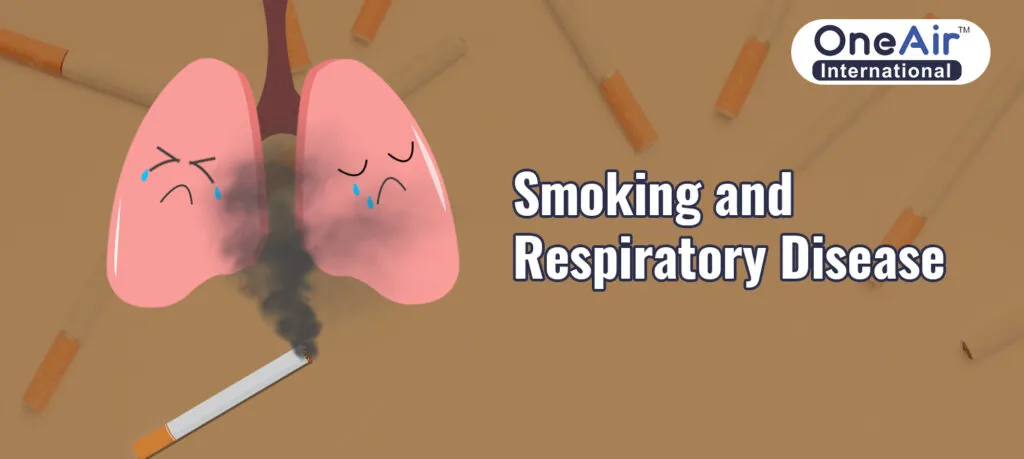
Our respiratory system plays an important role, in regulating the exchange of life-sustaining oxygen. However, an invisible player hides in the shadows, posing a significant threat to the complex structures of our lungs – smoking. This blog explores the complex relationship between smoking and respiratory disease, explaining the major effect that tobacco smoke can have on lung health.
Understanding the Respiratory System:
Before we start into the harmful effects, let’s appreciate the magnificent form of the respiratory system. Comprising the nose, throat, windpipe, and lungs, this system works tirelessly to deliver oxygen to every cell in our body while expelling carbon dioxide. It’s a finely tuned orchestra of organs, each playing a crucial role in maintaining the delicate balance necessary for good health.
The Hazard of Smoking:
Let’s talk about smoking, a widespread habit that introduces a cocktail of harmful substances into the respiratory system. Cigarette smoke contains an array of toxins, including tar, nicotine, carbon monoxide, and various carcinogens. The impact of these substances extends far beyond the short-term pleasure that smoking may provide, infiltrating the very core of our respiratory well-being.
Smoking and Chronic Obstructive Pulmonary Disease (COPD):
One of the most severe consequences of smoking is its strong association with Chronic Obstructive Pulmonary Disease (COPD). COPD is a general term that includes both chronic bronchitis and emphysema, which are disorders marked by lung tissue degradation and ongoing airway inflammation. Smoking is the primary cause of COPD, and the risk increases with the duration and intensity of smoking.
Lung Cancer:
Perhaps the most well-known link between smoking and respiratory disease is lung cancer. The carcinogens in tobacco smoke can lead to the uncontrolled growth of cells in the lungs, forming tumors that can be dangerous. Lung cancer is a dangerous disease, often diagnosed at advanced stages when treatment options are limited.
Impact on Respiratory Infections:
Smoking weakens the immune system’s defense against respiratory infections. Smokers are more susceptible to illnesses such as pneumonia and bronchitis. Additionally, smoking can worsen the severity and duration of these infections, posing a higher risk of complications.
Reduced Lung Function:
The inhalation of smoke damages the delicate structures in the lungs, leading to reduced lung function over time. Conditions such as chronic bronchitis involve inflammation and narrowing of the airways, making it harder for air to flow in and out of the lungs. Emphysema, on the other hand, damages the air sacs in the lungs, diminishing their ability to expand and contract efficiently.
The Role of Secondhand Smoke:
The harm isn’t confined to smokers alone; secondhand smoke is equally dangerous. Nonsmokers exposed to secondhand smoke are at an increased risk of respiratory infections, asthma, and sudden infant death syndrome (SIDS) in infants. The dangers extend beyond personal choice, highlighting the negative impact of smoking on respiratory health.
Quitting Smoking: A Light of Hope:
The ray of hope in the dark cloud of smoking’s negative impacts on respiratory health is stopping. The human body has a remarkable ability to heal, and the benefits of quitting smoking can be observed even years after one quit. Lung function improves, the risk of respiratory infections decreases, and the overall health outlook brightens.
A Call to Respiratory Health Awareness:
The connection between smoking and respiratory disease is undeniable, underscoring the critical importance of awareness and PREVENTIVE MEASURES. Education, support in quitting smoking, and stringent tobacco control policies are vital components of the collective effort to protect respiratory health.
As we navigate the complexities of modern life, let us prioritize the well-being of our lungs. Understanding the complex relationship between smoking and respiratory disease empowers us to make informed choices, promoting a future where respiratory health thrives, untainted by the shadows of tobacco smoke.


